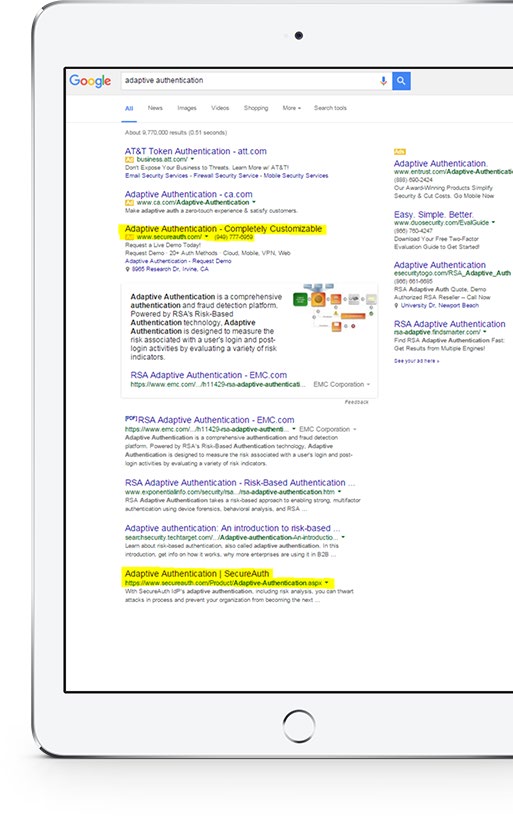

Golden Rule #15 of 20
Acquire High Authority Inbound Links with Killer Anchor Text
If you follow Google closely, you know that 2011 marked the beginning of the end for black-hat inbound link strategies with Google’s Panda algorithm update.
With a mission to “organize the world’s information and make it universally accessible and useful,” Google is constantly changing how they measure quality and relevancy. For years, people have tried to get around Google with keyword stuffing, link farming, and a number of rule-breaking tactics. As of late, it’s seemed to hit a peak – if you can’t beat ’em, join ’em.
Quality over quantity is dominating today’s search landscape. The more authoritative your information is, the more likely you are to have higher ranking and relevancy. These factors impact both your organic ranking and paid search quality score.
In the organic space, Google sees not only the content on your page as a measurement of your relevancy for a particular keyword, but it also takes into account the amount of “high quality” links pointing to your page as a reference. This shows that you not only have quality information, but also shows if big players in your space consider you a resource for information.
You can leverage these inbound links even more by making sure the anchor text for the link is a term or phrase you are targeting. This can assist with your paid search strategy by increasing your quality score. A higher quality score means a lower CPC.
Let’s break it down:
WHAT IS IT
- An inbound link with anchor text is a hyperlink to your targeted landing page from another website. The “anchor text” is the term/keyword that you would like to gain traction with, in this example case let’s call it “Adaptive Authentication.”
- Example: Moving beyond standard Two-Factor functionality, SecureAuth IdP also provides adaptive authentication features to help you increase your security profile to meet today’s demands.
HOW IT HELPS
- Google sees the anchor text phrase and linked landing page as a relevant source for information around that term.
- The more traction you can get through these one-way links, the more weight/relevancy your page has.
SecureAuth is a great example of a company that has leveraged high quality inbound links. They have obtained inbound links from companies such as Apple, BetaNews, LastPass, and more. Over time, they have become authorities in the space and show up on page 1 both organically and in paid search for targeted terms.
Lessons Learned?
Don’t fight Google. The more you can adopt their best practices to leverage your site and content, the better off you will be. High quality inbound links take time, and require some relationship building, but the effort is more than worth it if done correctly. Happy linking!


